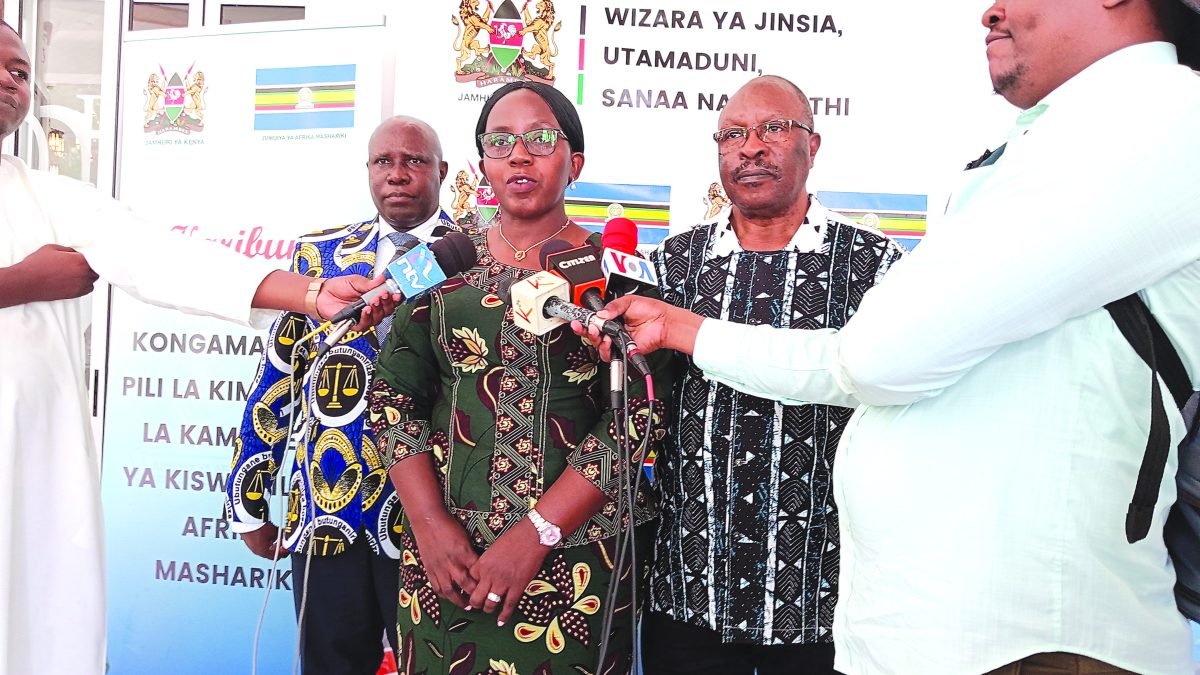Push to make Swahili EAC official language
By Reuben.Mwambingu, July 8, 2024Partners say the move will foster peace and unity across the seven states
Kiswahili stakeholders have urged the East African Community (EAC) Council of Ministers to expedite the ratification of Kiswahili as the official language of the region.
They argue that this move will foster a culture of peace in the region and beyond. Currently, the EAC lacks a policy mandating the use of Kiswahili across its seven partner states.
Despite being declared an official language of the bloc alongside English and French, Kiswahili has not been fully adopted for official use, even in the East African Legislative Assembly.
As the world celebrated World Kiswahili Day yesterday, President of the East African Court of Justice (EACJ) Nestor Kayobera, lamented the absence of a comprehensive language policy in the EAC. This gap, he said, has hindered the full utilisation of Kiswahili.
Article 119 of the EAC treaty mandates partner states to promote indigenous languages, with a special emphasis on Kiswahili as a lingua franca for the region. Speaking at the International East African Kiswahili Commission conference in Mombasa, Kayobera expressed concern that the EAC treaty designates English as the official language while relegating Kiswahili to a lingua franca – a common language for communication among people with different native languages. “In the treaty, Kiswahili is a lingua franca, not the official language.
The summit of EAC Heads of State declared French and Kiswahili as official languages, but the treaty has yet to be amended,” explained Justice Kayobera. As a result, the EACJ cannot issue rulings in Kiswahili until the treaty is updated.
More than 300 Kiswahili professionals gathered in Mombasa for the two-day International East African Kiswahili Commission conference, themed “Kiswahili, Education, and Multilingualism in Achieving Peace.” The event concluded with the commemoration of World Kiswahili Day on Sunday. Renowned Kenyan linguist and advocate for Kiswahili, Prof Kimani Njogu, stressed the importance of drafting, enacting, and implementing laws in Kiswahili.
“Many court users speak Kiswahili, but judgments are delivered in English because the judiciary operates under laws enacted in English,” said Prof Njogu.
He emphasised that Kiswahili must adapt to technological advancements, calling for the establishment of commissions to standardize new terminologies like Artifi[1]cial Intelligence (AI).
“Tanzania translates AI as Akili Mnem[1]ba, while Kenya uses Akili Unde. We need standardised terminologies for effective communication,” added Prof Njogu.
He also highlighted the creative economy’s reliance on Kiswahili, driven by East Af[1]rican youth in music and film. Strategy in place Executive Secretary of the East African Kiswahili Commission, Dr Caroline Asi[1]imwe revealed that a strategy is in place to assist new EAC partner states in adopting Kiswahili through mobilisation and re[1]search. She noted that South Sudan has initiated Kiswahili programs in secondary schools.
“Six member states have strategies to promote Kiswahili. All partner states should establish commissions and institutions to further this cause,” said Dr Asiimwe.
Chairman of the organising committee, Dr Ahmed Yassin said the conference was intended to enhance Kiswahili use worldwide. He urged Kenyans to use Kiswahili to foster unity rather than division, noting the youth’s tendency to mix Kiswahili with Sheng.
“We have a significant task to preserve all 15 Kiswahili dialects digitally and re[1]vive those that are neglected or inactive,” Dr Yassin stated. Solid recommendations During the conference’s opening, Gen[1]der, Culture, Arts, and Heritage Cabinet Secretary Aisha Jumwa called for solid recommendations to encourage EAC ministers to adopt Kiswahili as an official language. “We must glorify Kiswahili. Speaking Kiswahili is not a weakness; its richness highlights its importance. If you’re a Kiswahili speaker like me, be proud; not everyone has the skill to speak it,” said CS Jumwa.
She proposed establishing a Kiswahili day in Kenya to promote its use across the judiciary, parliament, cabinet, schools, and markets.
“I want us to recom[1]mend laws and policies to be written and published in Kiswahili. This will aid many, especially in our courts,” CS Jumwa sug[1]gested. She emphasised Kiswahili’s pivot[1]al role in societal, cultural, and economic development in the region. “Kiswahili has connected nations, communities, and cultures, deepen[1]ing our unity as East Africans,” said CS Jumwa,
Noting that its global use reflects stakeholders’ efforts. She called for the ongoing promotion of Kiswahili in all life spheres in the 21st century to protect the region’s cultural heritage and preserve the language for future generations.
CS Jumwa urged concerted efforts to elevate Kiswahili as a powerful and influential international language. WORLD KISWAHILI DAY Yesterday, the world commemorated World Kiswahili Day. CS Jumwa says it’s important to elevate Kiswahili as a powerful language internationally.
